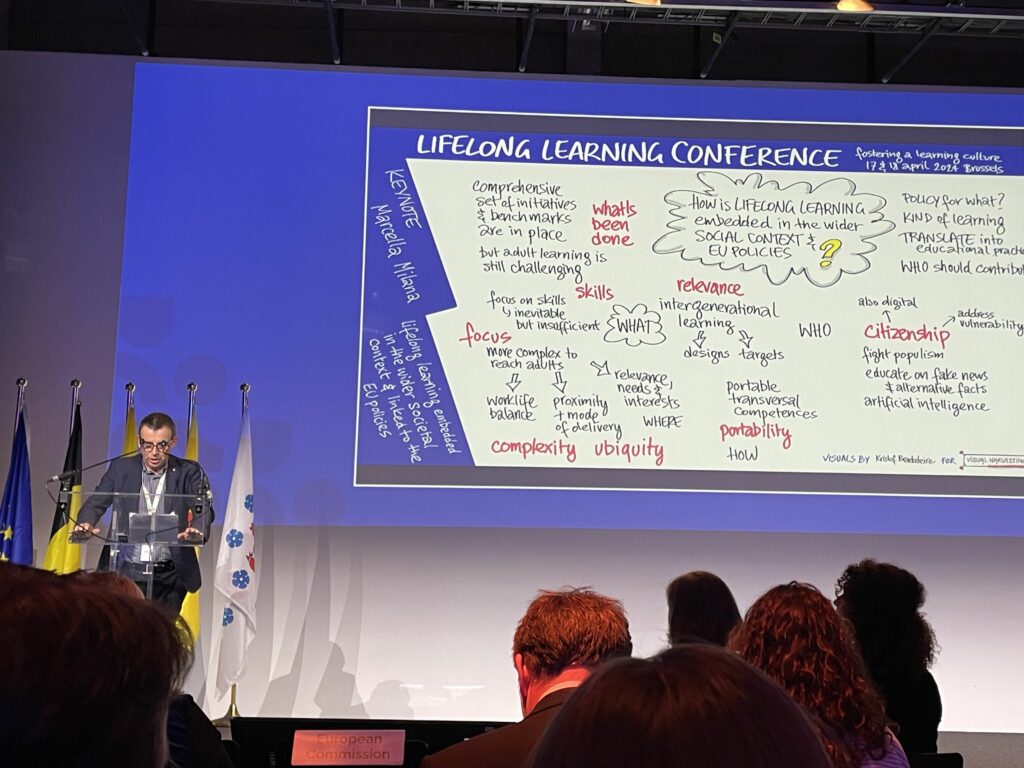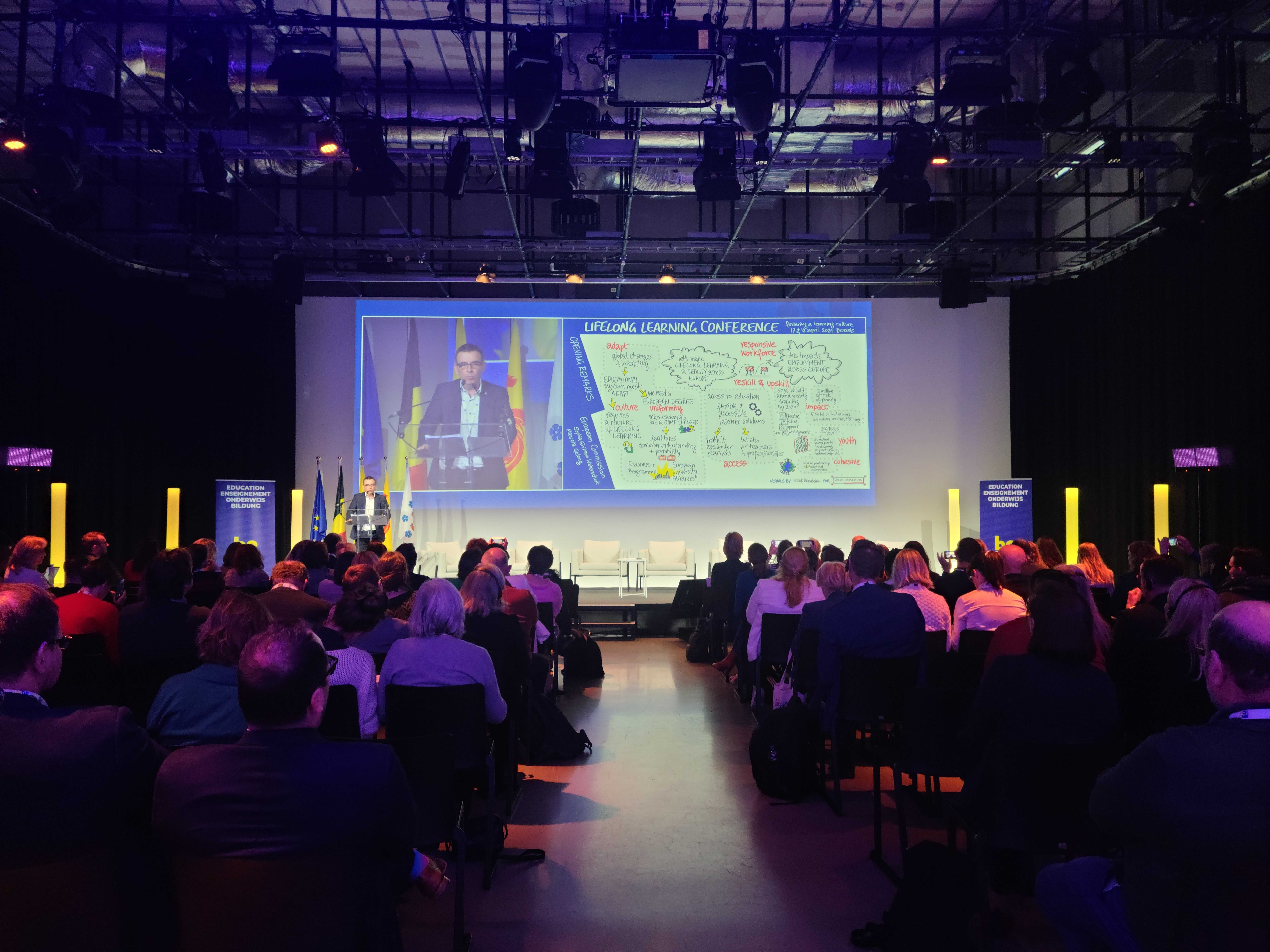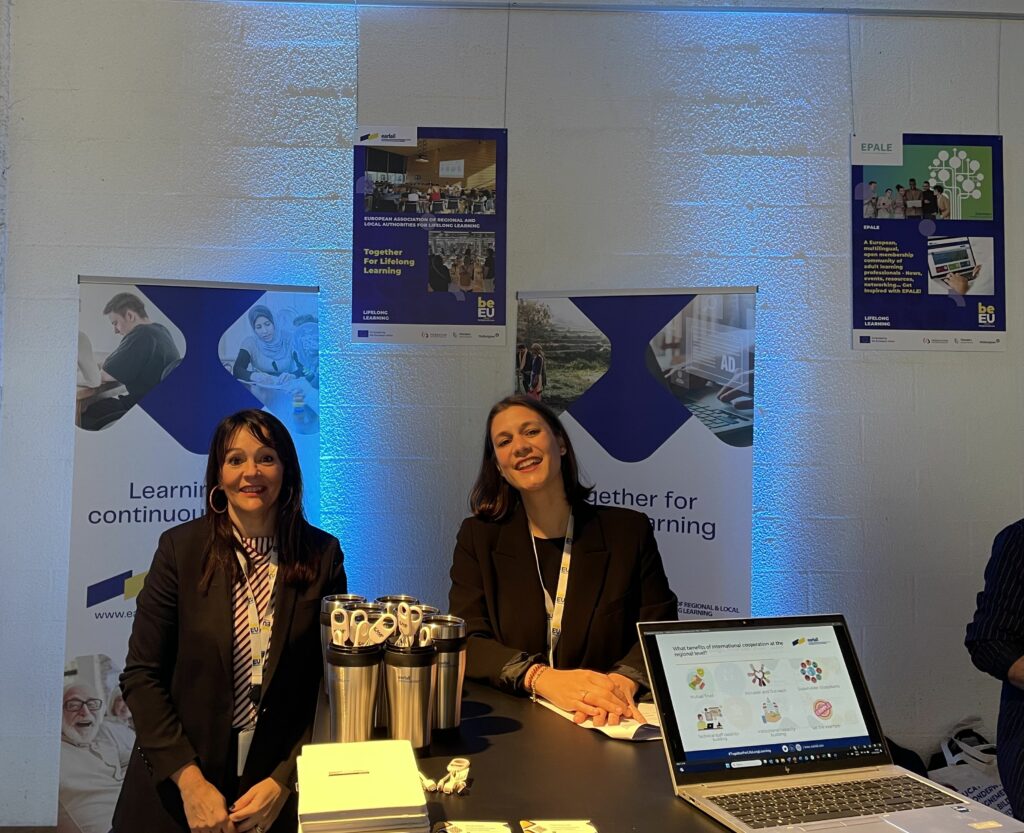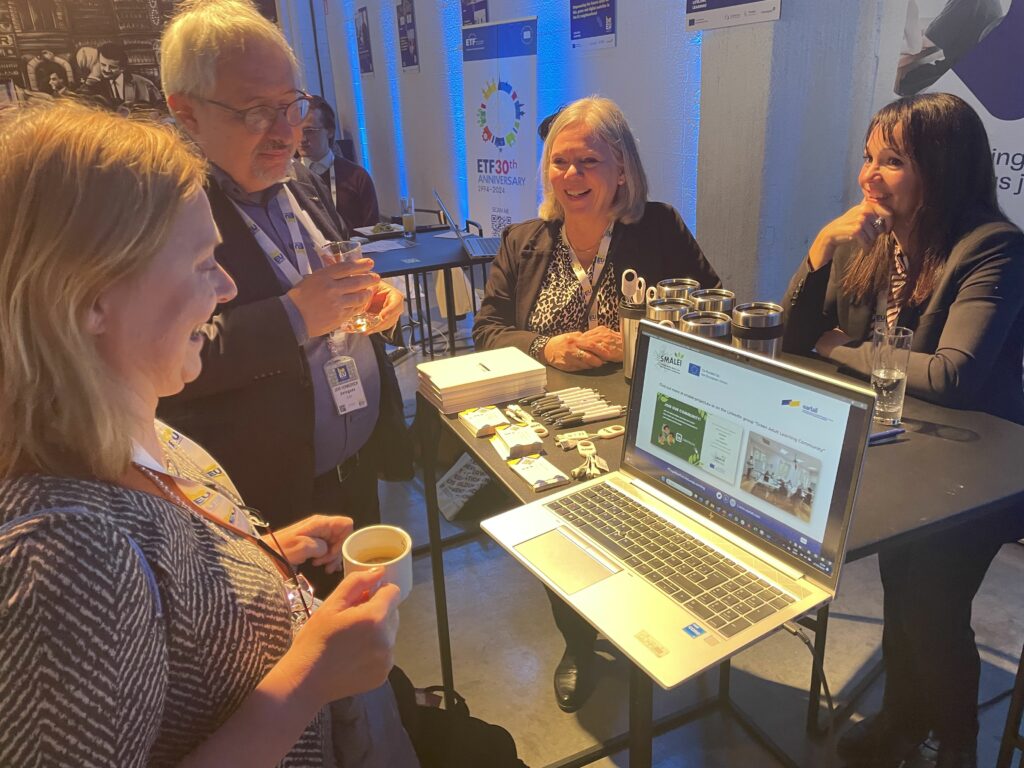EARLALL presents its activities and projects during the Belgian Presidency’s Lifelong Learning Conference in Brussels
19/04/2024

Between April 17- 18 2024, the Belgium Presidency of the Council of the EU organised a high-level Conference on Lifelong Learning – fostering a learning culture in Brussels (Belgium). This was one of the flagship events of the education agenda of the Belgian Presidency. EARLALL’s secretariat was invited to participate in the conference and hold a stand during the Lifelong Learning Festival, where they networked with relevant stakeholders and discussed EARLALL’s work.
Lifelong Learning Conference: State of Play and Barriers Ahead
The Conference explored many aspects of lifelong learning, from the European policies framework to understanding motivation and barriers to participation in continuous education activities. The Belgian Presidency of the Council of the EU opened the conference by stressing the relevance of fostering the culture of lifelong learning at the European level. Ms Natalie Verstraete, Head of the Transversal Policy Division at the Flemish Ministry for Education and Training, presented the different European Lifelong Learning policies, from the Lisbon Treaty to the Porto Summit (2021). Ms Verstraete highlighted the importance of developing a learner-oriented approach. She added that “today companies can’t find skilled profiles that match their needs, so a lifelong learning culture can support both companies and workers and also navigate the twin transition challenges.”
The representatives from the European Commission, Ms Sophia Eriksson Waterschoot (DG for Education, Youth, Sport & Culture) and Ms Manuela Geleng (DG of Employment, Social Affairs & Inclusion) presented at the latest European initiatives. Ms Eriksson Waterschoot introduced the European Degree and the concept of Lifelong Learning in Higher Education. She pointed out the importance of micro-credentials as enablers to strengthen the lifelong learning culture. Ms Geleng focused on initiatives to foster a lifelong learning culture at the European level, such as the European Pillar of Social Rights. The first action under the pillar is about education, training, and lifelong learning. Ms Geleng explained that the first pillar was devised during the open consultation with Social Europe stakeholders and citizens.
Following the overview of the EU context, Professor Ellen Boeren presented her research on participation and motivation in lifelong learning. Professor Boeren stressed the need for more detailed cross-European longitudinal data which enable researchers to better estimate the effects of mid and long-term outcomes. She added that “the older you get, the less you learn”, which is why individual learners need incentives. Professor Marcella Milana thendiscussed the wider societal context of lifelong learning and how this links to policymaking in general and on the EU level in particular.
The panel discussion addressed the main challenges, now and ahead of us, to increase participation in learning. Ms Horia Onita, President of the Erasmus Student Union, mentioned that more coordination, guidance, efficiency and learner-centred policies are needed. Inclusion is one of the key elements, as stressed by Ms Dearbháil Lawless, Vice-President of the European Association for Adult Education (EAEA) when she pointed out that we need to check who is benefiting from the policies and who is missing.
EARLALL presents during the Lifelong Learning Festival
Over the two days, 20 organisations invested in lifelong learning, including EARLALL, were invited to present their work during the parallel lifelong learning festival. Among the projects discussed were the LCAMP – Learner-Centric Advanced Manufacturing Platform CoVE project, SKYLA Interreg Europe project, as well as Stride4Stride, REGALE, SMALEI, Lifelong Guidance 5.0 and NEETs for NEETs. EARLALL’s associate member Camilla Winter AB, along with Noelia Cantero, Director of EARLALL, Alicia Gaban and Charlotte Ede hosted the stall. Jens Vermeersch, GO! (EARLALL Associate Member) was also participating in the conference and discussed with conference visitors.



Inspiration and looking ahead
The second day opened with ministerial interventions on the challenges of the future and how lifelong learning can help to tackle them. In a video address, Mats Person, Minister for Education Sweden, discussed how their student finance scheme helps Sweden to handle the green and digital transition by helping upskilling efforts. The scheme compensates returning students with their net income loss, for training offers that strengthen their position in the labour market.
This was followed by a video address by Pilar Alegria, Minister for Education and Vocational Training, Spain. She highlighted that lifelong learning is a strategic tool for the labour market and society. For citizens in Spain, they are offered many training options and that will help them throughout their lives. This training needs to be linked to the professional needs of the country. Then, Frédéric Delcor, Secretary Général, Ministère de la Fédération Wallonie-Bruxelles, stated how important a lifelong learning approach is for Belgium, particularly with the green and digital transition, and the need to contribute to the changing needs of society. Lifelong learning also ensures a high-quality life for all citizens all throughout their lives.
The ministerial interventions were followed by a keynote speech from El Iza Mohamedou, Head of the OECD centre of skills. The OECD has found that skills-based hiring is on the rise, and older individuals who have successfully switched careers were most likely to have recently completed training courses. This evidence shows that a lifelong learning culture pays off, in society, but also the labour market.
Finally, a panel discussion on the opportunities and recommendations for a lifelong learning approach was held. Iraklis Pliakis, Expert in qualifications and credentials, CEDEFOP, then outlined the possibility of micro-credentials to provide flexible solutions to learning about specific topics. Rafaella Kihrer, Secretary General at the Lifelong Learning Platform highlighted that the learner should be at the centre of the entire process of devising adult education opportunities. She also mentioned that the regional and local level are very important, and networks that help to alter governance structures to accommodate lifelong learning are key.




